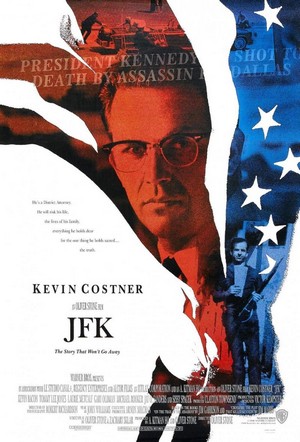
JFK (1991)

Raiting: ![]() 8 /10
8 /10
Genre: Thriller
Director: Oliver Stone
Stars: Kevin Costner, Kevin Bacon and Tommy Lee Jones
Country: United States / France
Release date: 20 December 1991
Length: 188 minutes / 206 minutes (director's cut)


Raiting: ![]() 8 /10
8 /10
Genre: Thriller
Director: Oliver Stone
Stars: Kevin Costner, Kevin Bacon and Tommy Lee Jones
Country: United States / France
Release date: 20 December 1991
Length: 188 minutes / 206 minutes (director's cut)